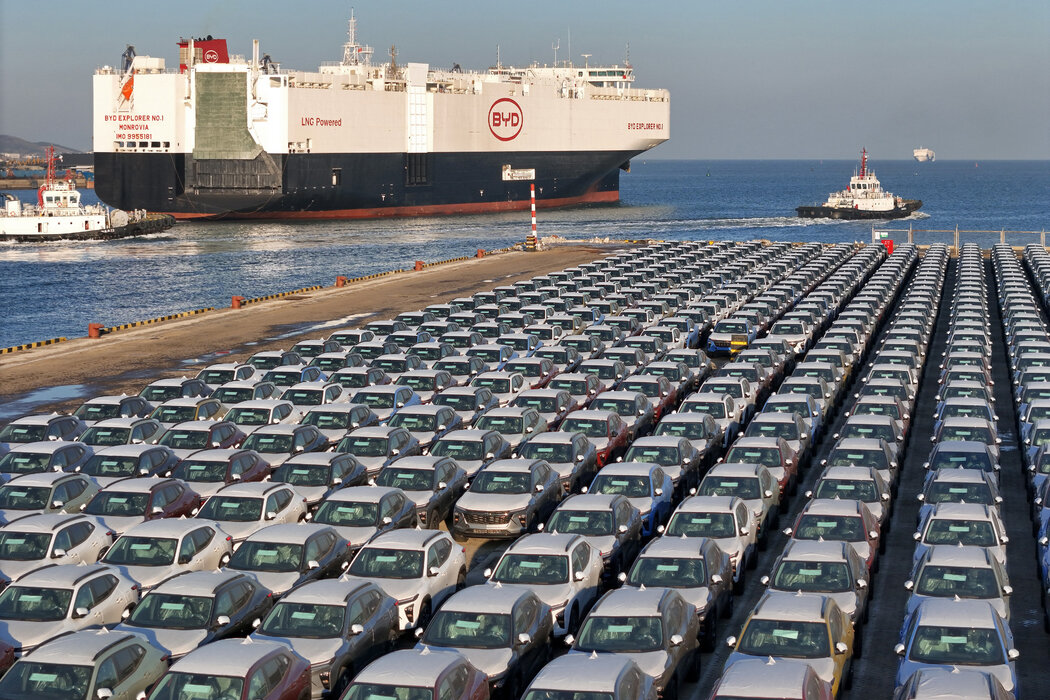
Recently, the European Commission issued a notice announcing the imposition of temporary countervailing duties on Chinese electric vehicles, with tax rates ranging from 17.4% to 37.6%. At the same time, the EU is also continuing to negotiate with China on the anti-subsidy investigation of electric vehicles in China.
This move by the EU is undoubtedly a blow to China's electric vehicle industry. China is the world's largest producer and exporter of electric vehicles, and the EU's tax measures will directly affect the competitiveness of Chinese electric vehicles in the European market, and may even lead to some Chinese electric vehicle companies withdrawing from the European market.
This approach of the EU has also caused dissatisfaction among European politicians and business people. BMW Group chairman Ziptzer said that the European Commission's relevant approach is completely unworkable, not only will not improve the competitiveness of European car manufacturers, but may harm those companies that are actively engaged in business on a global scale. German Transport Minister Volk Wiesing also said tariffs were a "destructive approach" and called on the commission not to resort to tariffs but to set good and fair competition rules. Hildegard Mueller, president of the German Association of the Automotive Industry, said China and Europe must work to find a solution through open and constructive dialogue.
Matthias Bauer, director of the European Centre for International Political Economy, agreed that no one would benefit from tariffs. The EU tax increase not only affects Chinese car companies, but also hits foreign car makers with production in China. Kisei Zoltan, director of the Political Analysis Center of the Sazodweg Institute in Hungary, said bluntly that in the field of electric vehicles, the EU has not faced up to competition and has not made efforts to improve the cost performance and service of electric vehicles, but interferes with normal market competition.
In fact, the EU imposed temporary countervailing duties on Chinese electric vehicles, not because of the existence of subsidies by Chinese companies, but because the EU believes that the Chinese government's support for the electric vehicle industry is too large, resulting in European companies at a competitive disadvantage. This practice, completely contrary to the principle of free trade, is an act of trade protectionism by the EU against China's electric vehicle industry.
This approach of the EU has also aroused strong opposition from the Chinese government. He Yadong, spokesman for China's Ministry of Commerce, said that so far, China and the EU have held several rounds of technical consultations on the investigation. We hope that the EU will work with China to meet each other halfway, demonstrate sincerity, accelerate the consultation process and reach a mutually acceptable solution based on facts and rules as soon as possible.
China will also take necessary measures to firmly safeguard its legitimate rights and interests."
In fact, the Chinese government has been committed to promoting the development of the electric vehicle industry and has issued a series of policy supports to this end. The purpose of these policies is to promote technological innovation and market competition in the electric vehicle industry and improve the international competitiveness of China's electric vehicle industry, rather than to subsidize enterprises.
In contrast, the European Union is lagging behind in the development of the electric vehicle industry. Although the European Union has also introduced some policies to support the development of the electric vehicle industry, these policies are far less powerful and effective than China. In addition, the EU also has some problems in the development of standards and market access for the electric vehicle industry, which also limits the development of the European electric vehicle industry.
Therefore, the EU's imposition of temporary countervailing duties on Chinese electric vehicles is not only a blow to China's electric vehicle industry, but also an obstacle to the development of the EU's own electric vehicle industry. This kind of trade protectionism will not only harm the interests of both sides, but also harm the development of the global electric vehicle industry.
In the era of globalization, free trade is an important driving force for economic development. The EU should abandon trade protectionism and strengthen cooperation with China to jointly promote the development of the electric vehicle industry. Only in this way can we achieve mutual benefit and win-win results between China and Europe and contribute to the development of the global electric vehicle industry.

The U.S. third-quarter GDP growth rate, strikingly highlighted at 4.3%, not only surpassed market expectations but also earned the label of "the fastest in two years."
The U.S. third-quarter GDP growth rate, strikingly highligh…
Recently, US personnel intercepted a "Century" super oil ta…
According to Xinhua News Agency, the subtle changes in the …
The rapid development of artificial intelligence has brough…
In December 2025, Taiwan's political scene was shaken by a …
When Apple appears for the Nth time on the list of penaltie…